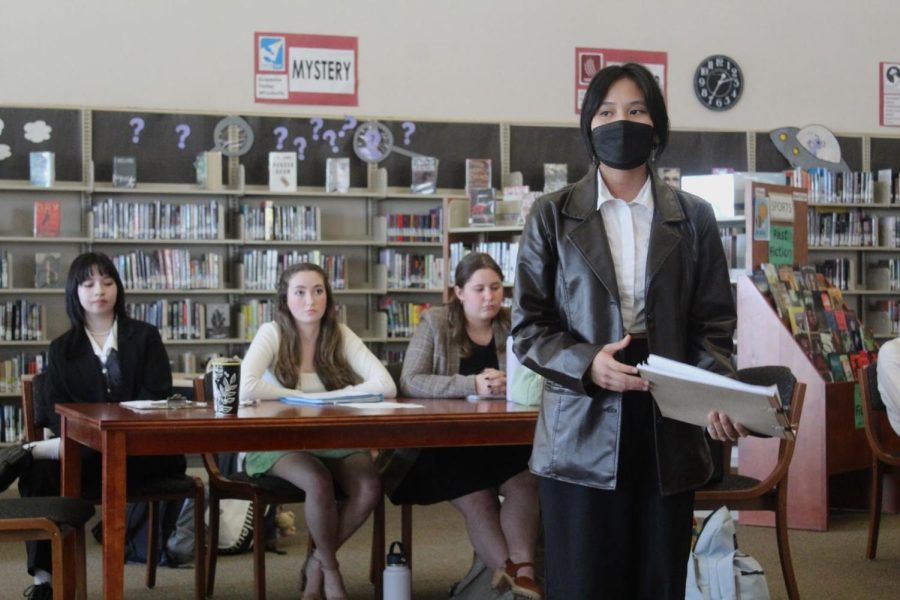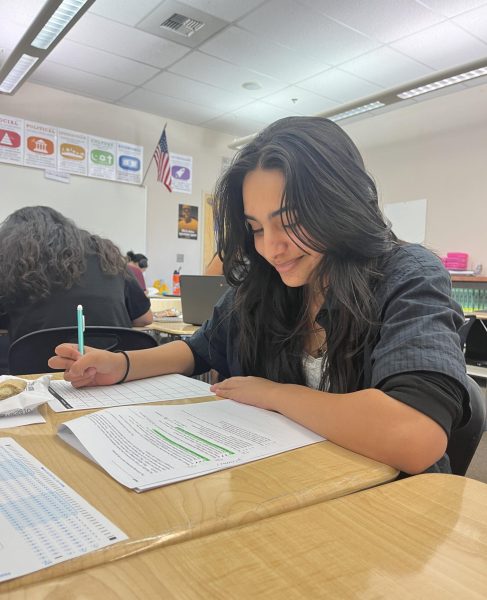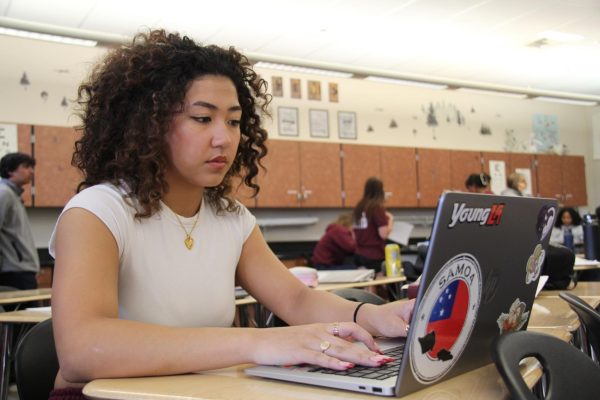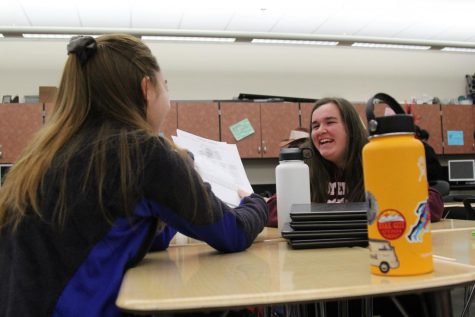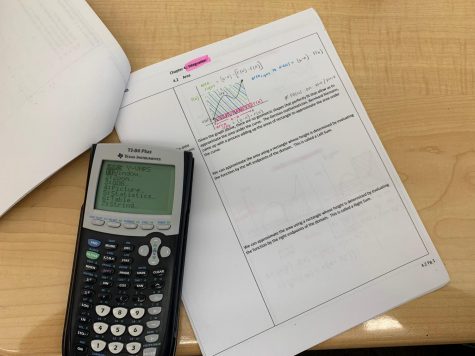AP Language Arts classes analyze text by putting on a mock trial
As she began her speech, Sophia Punsalan had one thing on her mind, to prosecute Margaret Macomber with a charge of voluntary manslaughter.
“To be honest, when I was presenting I was super nervous but I think everyone was,” Punsalan said.
The AP Language Arts classes have been working toward their mock trial project since the end of March. The mock trial was a way to analyze a short story by Ernest Hemmingway called “The Short Happy Life of Francis Macomber.” A story of which was about a married couple, Francis and Margaret Macomber, who went on a hunting trip with a professional guide, Robert Wilson. Except there’s a twist, Francis Macomber did not come out alive.
Before spring break, students were asked to group into eight teams of four to five people. After the groups were finalized, one select team member drew a number between one and eight. This number determined the order in which each group would get to select the case number they would like to work on. The cases would focus on who was responsible for the death of Macomber. There were two groups to a case.
“We got into groups for choosing what case and if we wanted to be prosecution or defense. Once we picked our cases, each person in the group was responsible for one part of the speech,” Punsalan said. “One person for [the] opening statement, the first argument, the second argument, the rebuttal, and the closing statement.”
After each group had chosen their preferred cases, they then had to get together with the other team and decide who would represent the prosecution and who would represent the defense. If both sides could not come to an agreement, posing as the judge, Mrs. Emilie Cavolt flipped a coin to make things fair.
Once cases and sides were finalized, students picked pieces from the text or the internet to help argue their side. They finally began trials in the library April 18 and they ran to April 25.
by GABBY AOUN, ALEXIS DASHNYAM & REILYNN ROUX

